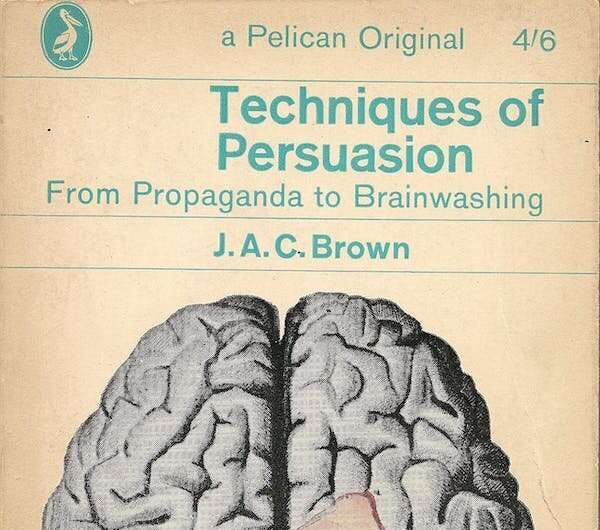This article has been reviewed according to Science X's editorial process and policies. Editors have highlighted the following attributes while ensuring the content's credibility:
fact-checked
trusted source
written by researcher(s)
proofread
Opinion: I went behind the scenes of Penguin Book's psychiatric titles. What I found was women's hidden labor

Penguin Books brought psychiatric ideas to post-war Britain through their inexpensive paperback list. This eclectic list ranged from general introductions to psychiatry and psychotherapy, to discussions of specific problems like depression and anorexia nervosa, and also large political issues such as propaganda and brainwashing.
I went "behind the scenes" of these books at the Penguin Archive at the University of Bristol Library, photographing more than 10,000 documents and developing an online exhibition of these striking paperbacks.
In the archive, I found a story that challenged my ideas about whose words were in these books. Behind the author's name was a hidden workforce of collaborators—sometimes unpaid, often unrecognized, and typically female.
Putting words directly on to paper with pen or typewriter could be too much for a busy professional psychiatrist. Instead, many employed women to type up their words and make their thoughts coherent. In other cases, female writers and editors would do the hard work of making their texts accessible to a general readership. However, few of these women were ever credited or even paid for their hard work.
Hidden collaborators
David Stafford-Clark (1916–1999) was a prominent British media psychiatrist in the 1950s and '60s. He provided Penguin with a hugely successful introduction, Psychiatry To-Day (1953), that remained in print until the 1970s.

This book, and all Stafford-Clark's subsequent publications, were based on drafts produced "in the raw by dictation." As his correspondence (held at the Wellcome Collection library in London) attests, he would "spew" out a semi-improvised talk that was then turned into typescript by means of "a dictaphone and a faithful, competent and efficient secretary."
And where a secretary was unavailable, a spouse could be employed instead. The wife of psychiatrist John Hinton (1926–2016), for example, invoiced Penguin Books for 58 hours of typing and indexing for the manuscript of her husband's highly successful and widely translated book Dying (1967). Patricia Hinton received £21 for her time and care.
This invites the question: how many other wives went unrewarded?
Even distinguished female collaborators could get a raw deal. Psychiatrist John Bowlby (1907–1990) pioneered "attachment theory," which promoted a secure bond between mother and child as the foundation of a healthy post-war society. His highly successful Penguin paperback Child Care and The Growth of Love (1952) was based on his ground-breaking 1951 report to the World Health Organization.
Bowlby's specialist report was shortened and simplified into "easy reading for the general public" by the penal reformer Margery Fry (1874–1958). But Penguin's contract was with Bowlby, who received a £150 advance on his royalties. Fry's material reward from the publisher "for the most cooperative way you have helped us" was around 68 copies of the final book (worth £5).
Manuscripts by psychiatrists often needed rewriting. Penguin later used an external editor, Dorothy Paddon, who was both knowledgeable in the social sciences and blessed with the eye of an astute copy editor. She was paid £87 for 140 hours spent in a thorough rewrite of Maxwell Jones's pioneering account of therapeutic communities, Social Psychiatry in the Community, in Hospitals, and in Prisons (1962). Jones wrote personally to Paddon, praising her "extraordinary competence" and "good grasp" of the subject.

Miss X
Not every author was so gracious.
After J.A.C. Brown (1911–1964) submitted the manuscript of his book on brainwashing, Techniques of Persuasion (1963), he responded angrily to editorial commentary from an "unknown person" whom he dubbed "Miss X." This editor, whose identity is unclear, challenged him on issues of historical accuracy, corrected his grammar and punctuation, and enforced rules such as the difference between "imply" and "infer."
In letters held at Penguin's archive, Brown accused Miss X of "extreme stupidity or wilful malice," and of being "arrogant, ignorant about matters upon which she assumes knowledge, and impertinent." This "underling" was "too clever by half," he said, and her punctuation meant that his "manuscript reads like a breathless child who has to stop for breath every few words."
While the sexism represented in Brown's harangue has (we hope) dwindled over the decades, hands-on copy editing, to the point of ghostwriting, may still haunt popular books by medical experts.
However, there does seem to be a turning of the tide, with more books now being co-authored. For instance, the recent insider history of the COVID pandemic, Spike (2022), by the former Wellcome Trust director Jeremy Farrar, credits science journalist Anjana Ahuja as co-author on the front cover.
We should probably stop thinking that every expert has to be a great writer. Instead, it would be worth questioning who else was behind some of the most popular non-fiction and academic texts for a general readership—in particular, women.
This article is republished from The Conversation under a Creative Commons license. Read the original article.![]()




















